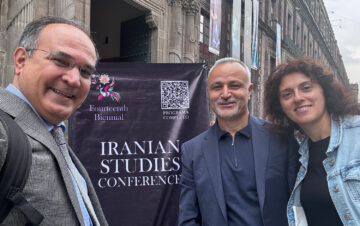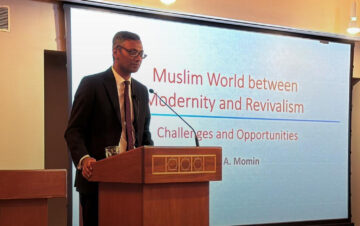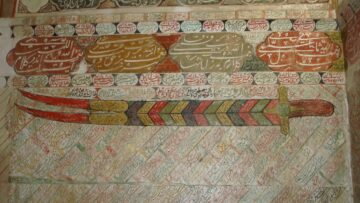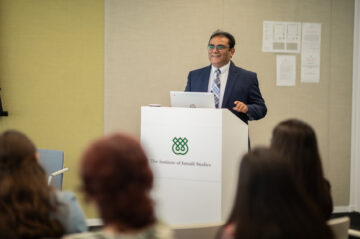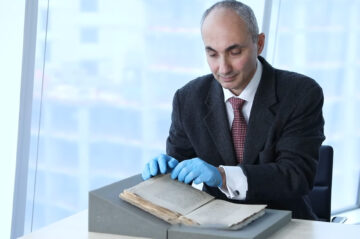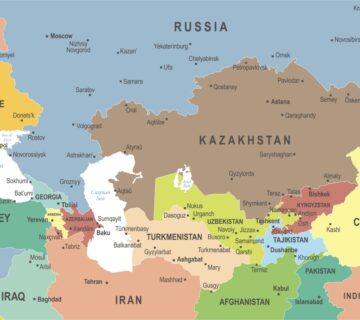From 23rd-26th June, thirty-one IIS alumni from ten countries traveled to Lisbon, Portugal to participate in academic seminar on Trends in Contemporary Muslim Thought. This seminar is part of an ongoing initiative by the Institute to provide continuing education opportunities for its graduates.
The four day seminar was held at the Centro Ismaili in Lisbon and focused on significant developments in Muslim thought in the contemporary period. Professor Mohammed Arkoun, an IIS Governor and a Senior Visiting Fellow at the Institute, commenced the seminar with an introductory address, setting the context for the discussions during the seminar, and delivered the keynote address on the fourth day, sharing his perspectives on a wide range of issues.
Professor Carl W Ernst, from the University of North Caroline at Chapel Hill, spoke about Muslim Rituals and Practices. He explored the significance of rituals and practices amongst Muslim communities and how they acquire meaning in both the past and the present. He also discussed the impact of ritualisation of Islam.
On the second day, Professor Ebrahim Moosa, from Duke University, delivered a session on Ethics and Law, illustrating through examples how law has been one of the vehicles of ethical ideals in Islam. He examined the breadth of legal and ethical thought in Islam and discussed the practical applications of ethical principles in contemporary societies. He also provided an introduction to the ethico-legal traditions of Islam, examining the historical development of the schools of law (Sunni and Shi‘i) and the Shariah.
The third day’s session focussed on the Qur’an(also Koran. Arabic term meaning, ‘recitation’ or ‘scripture’): Muslims believe that the Holy Qur’an contains divine revelations to the Prophet Muhammed received in Mecca and Medina over a period of… More and was facilitated by Dr Walid Saleh of the University of Toronto. During this session, he explored how the Qur’an is used by individuals and societies to reaffirm particular events and beliefs relevant in today’s context. He also discussed the concept of revelation and the variety of perspectives on this amongst Muslims.
Professor Azim Nanji was also in attendance and delivered a session to the participants on the opportunities that are open to the alumni that could have a significant impact on the educational activities of the global Ismaili Muslim community.
Since 2005, The IIS Alumni Relations Unit, coordinated by Mrs Selina Kassam Ramji, has introduced a number of initiatives, including the creation of Alumni Association Chapter Groups across the globe, to develop a closer working relationship and interaction with IIS alumni around the world.

